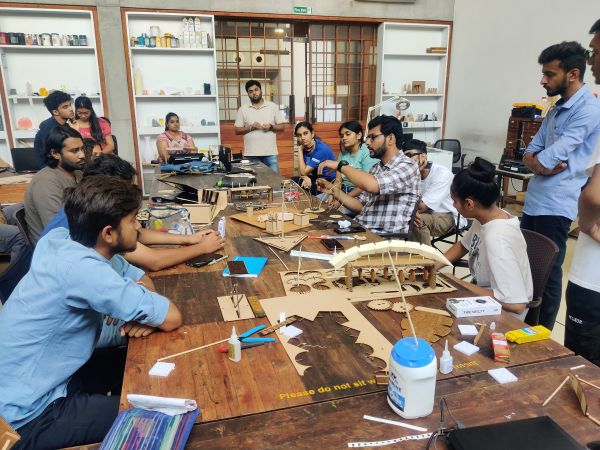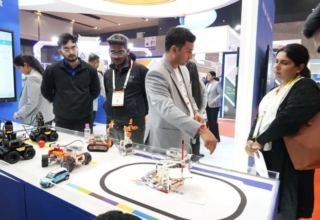
By Arun Prakash, Founder-CEO, GUVI.in
India is witnessing a massive transformation in its startup ecosystem, with more than 157,000 DPIIT-registered startups operating in the country as of December 2024 (most represent companies working in or around new-age technologies), and yet the lack of trained and knowledgeable professionals in these fields is holding the business sector from attaining the pinnacle of success. While this ground reality is dominant in all parts of the world, it is especially impacting the scope of growth and scalability of Indian tech startups, and the reason can be found in the country’s tech education system.
While new-age technologies like Artificial Intelligence (AI), Machine Learning (ML), Web3 and many others have largely become mainstream in the advanced world, Indian tech education largely follows a colonial textbook-based learning model. While the world progresses in technologies like AI, ML, and Quantum Computing — the vast majority of Indian learners are unable to become professionals in these disciplines from a traditional classroom-based learning method that is offered by the education system. Furthermore, India’s status as a dominion of numerous languages means students are yet to become calibrated well enough to pursue higher education in these disciplines in dominant languages, an aspect that is severely impacting their comprehension power.
While the National Education Policy (NEP) is addressing this concern gradually, modernising tech education remains the need of the hour for India, especially since the country envisions becoming a developed country by 2047. Modernising India’s tech education will also offer critical support for the country’s burgeoning startup ecosystem, addressing the shortage of talents by creating a funnel — positioning them for unprecedented innovation, growth and scalability.
State of Indian Tech Education
While India has a robust educational system that has been able to complement the country’s ambitions over the years, it has become ill-equipped to align with the robust technological advancements globally. For example, Blockchain has become one of the driving forces in the world to create an alternative finance model, and the first use case of it was the public release of Bitcoin in 2009. 16 years down the line, Blockchain’s impressive capabilities in decentralization have led it to be adopted by numerous sectors. However, the majority of conventional universities or engineering colleges in India still do not offer tailor-made programs in any Web3 technologies, including Blockchain.
A similar notion can be found if we go into disciplines like AI, ML and Quantum Computing. As India looks to create an indigenous Large Language Model (LLM) similar to DeepSeek or ChatGPT, Indian educational institutions do not offer relevant educational programs to equip students with these technologies, creating a massive gap.
In contrast, the EdTech industry in India has been proactive in addressing this comprehensive shift of technological outlook globally. Industry stakeholders predicted the advent of these technologies would have a profound impact on employment and development outlook — and addressed it holistically by creating supplementary programs to upskill college graduates and working professionals alike. At present, Indian tech corporations have also begun to upskill their existing workforce with private initiatives, an aspect that can be solved by a countrywide initiative such as reforms of the educational systems.
The Government of India has also addressed this shift and has been working towards making it a reality. In the last Union Budget, provisions have been made to create Centres of Excellence in AI for education, while allocating a budget of INR 500 crore. While the initiative closely aligns with the requirement, a more holistic solution could be the reformation of the country’s curriculum and modernising its tech education — aspects that are considered a prolonged process.
Bridging the Gap
While these challenges remain, it is also a fact that the Indian startup ecosystem is witnessing unprecedented growth in respective sectors. Irrespective of its technological outlook or sectors, startups are resorting towards new-age technologies for innovation and methodologically streamlining their offerings. For instance, healthcare startups are integrating AI for diagnosis, or imaging purposes. Educational startups are integrating AI for offering students a more immersive learning experience and Fintech startups are increasingly using technologies like AI and Blockchain for security, innovation and other related purposes. As Indian startups keep adopting new technologies on the back of minuscule support from the education system, hiring talents for particular roles like Data Scientists, ML Engineers, Automation Specialists, and Big Data Analysts is becoming challenging.
While the country’s EdTech ecosystem has become the go-to solution for upskilling, it highlights the immediate requirement of modernising India’s tech education frameworks. Beyond immediate growth, educational reforms in curriculums will position Indian tech education alongside global peers, also supporting Indian students to meaningfully contribute to the country’s growing startup space. Technology has always been a critical enabler of development, and a supportive education system that is well-equipped to navigate the dynamic advancements of technology will become a significant contributor to India’s vision to become a developed country.
Future Outlook
To comprehensively change the outlook of India’s tech education, support will be required from both private and government stakeholders. The private sector’s innovation and long-term vision, and the government’s policies can shape the future of India’s long-term tech education outlook — offering crucial support to the country’s growing startup ecosystem. The impact of this will go beyond offering initial support, but also equipping learners with a predetermined guideline on fulfilling their professional and personal ambitions. This will also favourably impact India’s role in the global technological index, transitioning the country’s reputation from a service provider to a technological innovator, a critical aspect to drive India’s long-term growth aspirations on the world stage.










